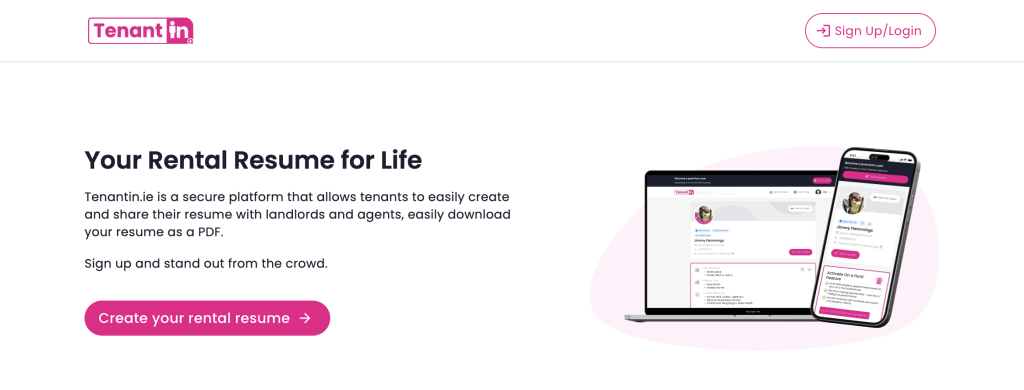For thousands of international students arriving in Ireland each year, the promise of quality education, cultural richness, and breathtaking landscapes comes with one universal challenge: securing accommodation. Whether you’re heading to Dublin, Cork, Galway, or Limerick, finding a place to live in Ireland’s competitive rental market is not just important—it’s essential to your study abroad success. If you’re an exchange student preparing to study in Ireland, the earlier you start preparing to rent, the smoother your transition will be. Here’s how to prepare for the Irish rental market before you even set foot in the country.
Understanding Ireland’s Competitive Rental Market
It’s vital to understand the nature of the rental landscape in Ireland. The demand for rental properties far outweighs supply in most urban centres. This high demand has resulted in rising rents and swift turnover—especially for student-friendly listings. Exchange students are often at a disadvantage because they’re searching from abroad, may not have local references, and might not fully understand the leasing process. But by preparing early and leveraging digital tools like Tenantin.ie, students can overcome these obstacles and position themselves as desirable tenants.

Create a Strong Rental Resume
One of the smartest steps a student can take is to create a rental resume. Much like a job application, a rental resume gives landlords a clear picture of who you are, your rental history (if any), and why you would be a reliable tenant. This is where Tenantin.ie proves exceptionally useful. The platform allows students to build a professional rental profile, which can include details such as your university enrolment confirmation, a letter of guarantee from your parents or sponsor, ID verification, and even references from previous landlords or host families if available.
By having all of this information ready and neatly presented in a digital format, you’re telling landlords that you’re serious, trustworthy, and ready to move in—qualities that Irish landlords are actively looking for in a tenant. And because Tenantin.ie profiles are designed specifically for the Irish rental market, they align perfectly with what landlords expect.
Set Realistic Expectations for Housing Types and Budget
In cities like Dublin, it may be challenging to find a one-bedroom apartment within a student budget. Many exchange students opt for house shares or student accommodations. When searching, be aware of average rental prices in your destination city. Irish property websites offer insights, but listings go fast. That’s why activating ‘On a Hunt’ on Tenantin.ie can give you a vital edge. This premium feature automatically connects your rental profile with live property listings on FindQo.ie, reaching out to landlords on your behalf with personalised applications. It also delivers daily email alerts, ensuring you’re among the first to hear about suitable properties that match your needs.
Have Your Documents Ready and Digitised
As you prepare, keep documentation ready and digitized. In Ireland, landlords often ask for copies of your passport, proof of funds, a reference letter, and in some cases, a guarantor. Exchange students may not have all these, but you can substitute some with a university acceptance letter, a host institution reference, or a scholarship confirmation letter. Tenantin.ie offers a secure way to store and present these documents, streamlining your application process and making you look more prepared and professional.

Know Your Rights and Responsibilities
Understanding your legal position as a tenant is crucial. The Residential Tenancies Board (RTB) outlines key rules that all tenants must follow, such as paying rent on time, maintaining the property, and notifying landlords before moving out. Conversely, landlords are obligated to provide a safe and habitable environment. They must also follow proper procedures if they wish to terminate a tenancy. Familiarising yourself with Irish tenancy laws will help you avoid issues and ensure a fair renting experience.
Watch Out for Scams
Rental fraud is a real concern, especially for students searching from abroad. Be wary of landlords or agents asking for deposits before you’ve viewed the property or signed a legitimate lease. Avoid deals that sound too good to be true. One of the advantages of using a platform like Tenantin.ie is the added layer of trust. Since you’re dealing with verified listings through its FindQo.ie integration and presenting yourself through a structured, vetted profile, you’re less likely to fall prey to suspicious offers.
Start Early for the Best Chances
Timing is everything. The Irish rental market is especially competitive around August and September when a new academic year begins. If your study programme starts in autumn, begin preparing your profile by early summer. If you wait until a few weeks before your arrival, you may find yourself paying higher rents or settling for a less-than-ideal option. Starting early and consistently applying—something that Tenantin.ie automates with the ‘On a Hunt’ feature—maximises your chances of landing a good place.
Continue Using Your Profile After Arrival
Once you’ve arrived in Ireland and secured accommodation, it’s still useful to keep your Tenantin.ie profile updated. If you extend your stay, apply for internships, or decide to move to another city, you’ll already have a robust rental CV ready to go. It’s a long-term asset that can help throughout your academic and early professional journey.

Final Thoughts
Renting in Ireland as an exchange student doesn’t have to be stressful or chaotic. With the right mindset, preparation, and tools, you can make the process smooth and efficient. Remember that competition is fierce, but so is your ability to stand out. By leveraging platforms like Tenantin.ie, organising your documents, understanding your rights, and staying alert to scams, you’re not just preparing to rent—you’re preparing to thrive in your new home abroad.
Frequently Asked Questions
What should I do first to secure a rental property before arriving in Ireland?
Begin by researching the areas you’re interested in living. Evaluate factors like proximity to your university, public transportation, and local amenities. Utilize websites like tenantin.ie to browse available properties and get a feel for current rental prices in different neighborhoods.
How can I find out about the average rent prices in my desired area?
Check online resources such as tenantin.ie where you can filter listings by location to see various price ranges. This will give you a realistic expectation of what you might need to budget for rent.
Is it possible to sign a lease agreement before arriving in Ireland?
Yes, but proceed with caution. It’s critical to verify the legitimacy of any property and landlord. Consider arranging virtual tours and requesting references from past tenants if possible. Always review lease agreements thoroughly.
What documents will I need to provide when applying for a rental?
Typically, landlords require identification (like a passport), proof of enrollment at your educational institution, possibly a guarantor or proof of financial capability, and sometimes references from previous landlords.
Can I view properties remotely?
Many landlords now offer virtual viewings via video calls. This can be an excellent way for exchange students to see properties without being physically present. You can inquire about this option through platforms like tenantin.ie.
Should I consider short-term rentals initially?
Short-term rentals or temporary accommodations can be a practical choice while you search for a more permanent home upon arrival. This allows you to explore neighborhoods firsthand and make an informed decision about where you’d like to live long-term.
What are some common pitfalls exchange students face when renting in Ireland?
Exchange students often encounter issues such as underestimating rent costs, not understanding lease terms fully, or falling for rental scams. Always verify listings through reputable platforms like tenantin.ie and don’t rush into decisions without adequate research.
How can I ensure my safety when renting from abroad?
Prioritize listings from verified landlords or agents and avoid sending money without confirmation of the property’s legitimacy. Websites like tenantin.ie strive to provide reliable listings but always double-check details independently.
What should I know about utilities and additional costs?
Besides rent, factor in potential additional costs such as utilities (electricity, gas, water), internet, and waste collection. Some properties might include these in the rent; others may not, so it’s important to clarify this with the landlord beforehand.
Where can I find more resources or support once I arrive in Ireland?
Upon arrival, you may want continued support navigating the rental market or local legalities associated with tenancies. Tenantin.ie offers resources and guides that can assist you further as you settle into your new environment.






